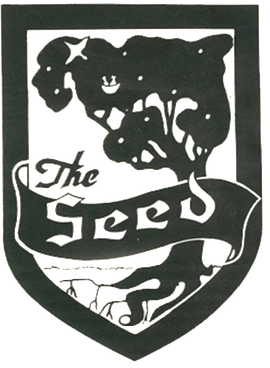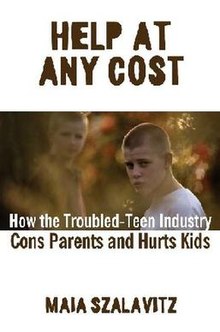The World Wide Association of Specialty Programs and Schools was an organization based in Utah, in the United States. WWASPS was founded by Robert Lichfield and was incorporated in 1998. WWASPS stated that it was an umbrella organization of independent institutions for education and treatment of troubled teenagers. Many outside observers believe, however, that the WWASPS-affiliated institutions were actually owned by WWASPS or its principal officials or their close relatives. WWASPS is connected to several affiliated for-profit companies. These include Teen Help LLC, the marketing arm of WWASPS and the entity that processes admissions paperwork; Teen Escort Service, a teen escort company that transports teenagers to WWASPS facilities; R&B Billing, which does tuition billing and payment processing; and Premier Educational Systems, LLC, which conducts orientation and training workshops for parents whose children are in WWASPS facilities. WWASPS claims to have "helped" over 10,000 students with issues related to personal behavior. Some participants and parents give positive reports of their experiences, but others say that WWASPS programs were abusive. WWASPS has faced widespread allegations of physical and psychological abuse of the teenagers sent into its programs, resulting in a lawsuit filed against the organization in 2006. WWASPS officials report that the organization is no longer in business, and the facilities originally under it no longer associate with the name, but because of ongoing litigation, it has not been dissolved.

Synanon, originally known as Tender Loving Care, is a new religious movement founded in 1958 by Charles E. "Chuck" Dederich Sr. in Santa Monica, California, United States. Originally established as a drug rehabilitation program, Synanon developed into an alternative community centered on group truth-telling sessions that came to be known as the "Synanon Game," a form of attack therapy. The group ultimately became a cult called the Church of Synanon in the 1970s.
A behavior modification facility is a residential educational and treatment institution enrolling adolescents who are perceived as displaying antisocial behavior, in an attempt to alter their conduct.
Tough love is the act of treating a person sternly or harshly with the intent to help them in the long run.

Wilderness therapy, also known as outdoor behavioral healthcare, is a treatment option for behavioral disorders, substance abuse, and mental health issues in adolescents. Patients spend time living outdoors with peers. Reports of abuse, deaths, and lack of research into efficacy have led to controversy, and there is no solid proof of its effectiveness in treating such behavioral disorders, substance abuse, and mental health issues in adolescents.
In the United States, a teen escort company, also called a youth transport firm, is a business that specializes in transporting teenagers from their homes to various facilities.
The National Association of Therapeutic Schools and Programs (NATSAP) is a United States trade organization of therapeutic schools, residential treatment programs, wilderness programs, outdoor therapeutic programs, young adult programs, and home-based residential programs for adolescents and young adults with emotional and behavioral difficulties. It was formed in January 1999 by the founders of six programs within the so-called "troubled teen industry," and its board of directors consists of program owners and educational consultants. Ironically, all but one of those founding six programs have been shut down in the ensuing years for a variety of reasons, including child abuse, neglect, licensing violations, and successful class action lawsuits.
Attack therapy was one of several pseudo-therapeutic methods described in the book Crazy Therapies. It involves highly confrontational interaction between the patient and a therapist, or between the patient and fellow patients during group therapy, in which the patient may be verbally abused, denounced, or humiliated by the therapist or other members of the group.

The Drug Free America Foundation (DFAF) is a 501(c)(3) nonprofit organization founded in 1976 by former US Ambassador Mel Sembler, his wife Betty Sembler (née Schlesinger), and Joseph Zappala as Straight, Inc., renamed The Straight Foundation, Inc. in 1985 and Drug Free America Foundation in 1995.

The Community Alliance For the Ethical Treatment of Youth (CAFETY) is an advocacy group for people enrolled in residential treatment programs for at-risk teenagers. The group's mission includes advocating for access to advocates, due process, alternatives to aversive behavioral interventions, and alternatives to restraints and seclusion for young people in treatment programs. They have also called for the routine reporting of abuse in residential treatment programs, as well as federal government oversight and regulation of residential treatment programs.

CEDU Educational Services, Inc., known simply as CEDU, was a company founded in 1967 by Mel Wasserman and associated with the troubled teen industry. The company owned and operated several therapeutic boarding schools licensed as group homes, wilderness therapy programs, and behavior modification programs in California and Idaho. The company's schools have faced numerous allegations of abuse. CEDU went out of business in 2005, amid lawsuits and state regulatory crackdowns.

Mount Bachelor Academy was an Oregon private co-educational therapeutic boarding school providing help to families of adolescents experiencing emotional and behavioral disorders including, minor Depressive Disorder, Oppositional Defiant Disorder, Substance abuse, and ADHD as well as help for teenagers and families struggling with adoption issues. The typical student was between 14 and 18 years of age. The average length of stay was 14 to 16 months.

Daytop, or Daytop Village, is a drug addiction treatment organization with facilities in New York City. It was founded in 1963 in Tottenville, Staten Island by Daniel Harold Casriel along with Monsignor William B. O'Brien, a Roman Catholic priest and founder and president of the World Federation of Therapeutic Communities. Ron Brancato from the Pelham Bay area of Bronx New York, Program Director and former resident of Synanon, California. Synanon was the only drug rehabilitation program until Daytop Village NY.
Building Bridges is a program located in Thompson Falls, Montana, designed to help adolescent males with addiction and behavior issues. It was created in 1996 to house male teenagers, aged 14 to 18, in a natural and highly structured environment. Building Bridges is a private, small, long-term residential program, of a self-reported average duration of 12–18 months. It is a member of the National Association of Therapeutic Schools and Programs (NATSAP).
Chrysalis is a private, small therapeutic boarding school for girls between the ages of 13 and 18 years old. It is located in Eureka, Montana. Chrysalis was created in 1998 and now is a full member of the National Association of Therapeutic Schools and Programs (NATSAP).
Spring Creek Lodge Academy was a boarding school located in Thompson Falls, Montana. The school, formerly known as Spring Creek Community, was first opened in the 1970s by Nancy and Steve Cawdrey. In 1996, the school and the property were purchased by Cameron Pullan and Dan Peart and given the name Spring Creek Lodge Academy. For several years the school was associated with the Utah-based World Wide Association of Specialty Programs and Schools. The school was opened as a place to address behavioral issues of young people from across the United States as well as motivate students for success.
Elevations RTC is a residential treatment center in Syracuse, Utah, for teens ages 13–18. The facility was formerly known as Island View Residential Treatment Center until 2014, when it was acquired by Syracuse RTC, LLC, which does business as Elevations RTC. The Elevations campus is shared with Seven Stars and ViewPoint Center.

Maia Pearl Szalavitz is an American reporter and author who focuses on science, public policy and addiction treatment.

The Seed was a controversial drug rehabilitation program in the United States that operated between 1970 and 2001. Aimed at youths, the program was modeled after adult treatment programs, with its techniques having been compared to those of the cult Synanon. In a 1974 U.S Senate report, its techniques were also compared to the North Korean brainwashing technique used on Prisoners of War during the Korean War. At its height in the 1970s The Seed had locations in Fort Lauderdale, Fort Myers, Dade County, and St. Petersburg. The organisation widely marketed itself as "spectacularly successful", "teaching love", and received wide press coverage. There was also a location in Cleveland, Ohio. Art Barker and his entourage would travel back and forth a couple times a month.
The troubled teen industry is a term used to refer to a broad range of youth residential programs aimed at struggling teenagers. The term encompasses various facilities and programs, including youth residential treatment centers, wilderness programs, boot camps, and therapeutic boarding schools.









